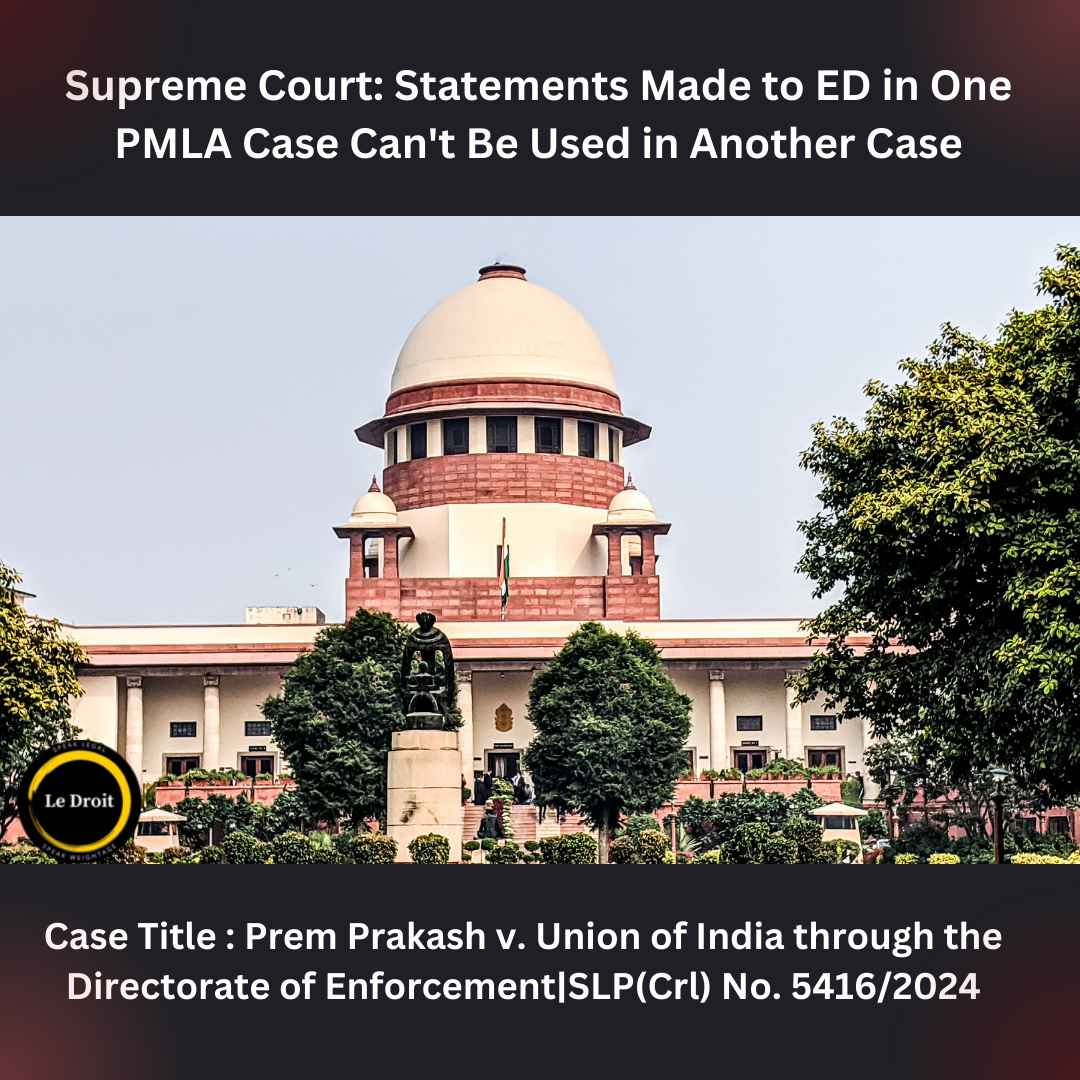The Supreme Court of India has ruled that statements made by an accused to the Enforcement Directorate (ED) while in custody under the Prevention of Money Laundering Act (PMLA) cannot be used as evidence to incriminate the accused in a different PMLA case. This decision was delivered by a bench comprising Justices B.R. Gavai and Prashant Kumar Mishra.
Background of the Case:
The case in question involved an individual who, while being interrogated by the ED under the PMLA, made a statement that could potentially incriminate him in another ongoing investigation under the same Act. The ED sought to use this statement in the separate case to strengthen its argument against the accused.
Court’s Findings:
The Supreme Court observed that the Constitution of India, under Article 20(3), protects an individual from being compelled to be a witness against oneself. The bench emphasized that any statement obtained under duress or coercion while in custody cannot be treated as voluntary. Therefore, such a statement should not be admissible in another PMLA case against the same accused.
The court further elaborated that the procedure for obtaining evidence must align with constitutional safeguards. Justices Gavai and Mishra noted that while the ED has the authority to record statements during investigations, it must ensure that these statements are not used to infringe upon the fundamental rights of the accused.
Implications of the Judgment:
This judgment is significant as it underscores the importance of constitutional protections for individuals, even in cases involving economic offenses such as money laundering. It serves as a reminder to investigative agencies to adhere strictly to legal and constitutional procedures, particularly when handling sensitive information that could have far-reaching consequences for the accused.
Legal Experts’ Views:
Legal experts have welcomed the judgment, considering it a necessary check on investigative agencies’ powers. They argue that while the PMLA aims to curb financial crimes, it must not do so at the cost of individual rights guaranteed under the Constitution. The ruling provides clarity on the admissibility of statements made in custody and ensures that such statements are not used indiscriminately across multiple cases.
Conclusion:
The Supreme Court’s decision reaffirms the principle that the rights of the accused must be safeguarded against potential misuse of authority by investigative agencies. This ruling is expected to have a significant impact on how investigations under the PMLA are conducted in the future, particularly concerning the admissibility of statements made under custody.
Case Title : Prem Prakash v. Union of India through the Directorate of Enforcement|SLP(Crl) No. 5416/2024
JOIN CERTIFICATE COURSE ON PREVENTION OF MONEY LAUNDERING ACT-CLICK HERE

